I am very pleased to republish Paul F. DeMeester’s coruscating critique of British Athletics’ disgraceful decision to exclude Cameron Corbishley and in particular Dominic King from the GB Olympic team and its craven role in supporting the abolition of the 50 kilometres race walk from the Olympic and World championship programmes. On the issue of the 50 kilometres’ execution, which strikes at the very heart and soul of our sport, we should not go gently into the night.
The piece first appeared in the Victoria Race Walking Club’s, Number 50 newsletter, ‘Heel and Toe’. In issue 49 Tim Erickson has put together a fascinating piece on the momentous history of 50 km walking in Australia. Recent copies of the newsletter can be found at http://vrwc.org.au/
The Decline and Fall of the British Empire
By Paul F. DeMeester
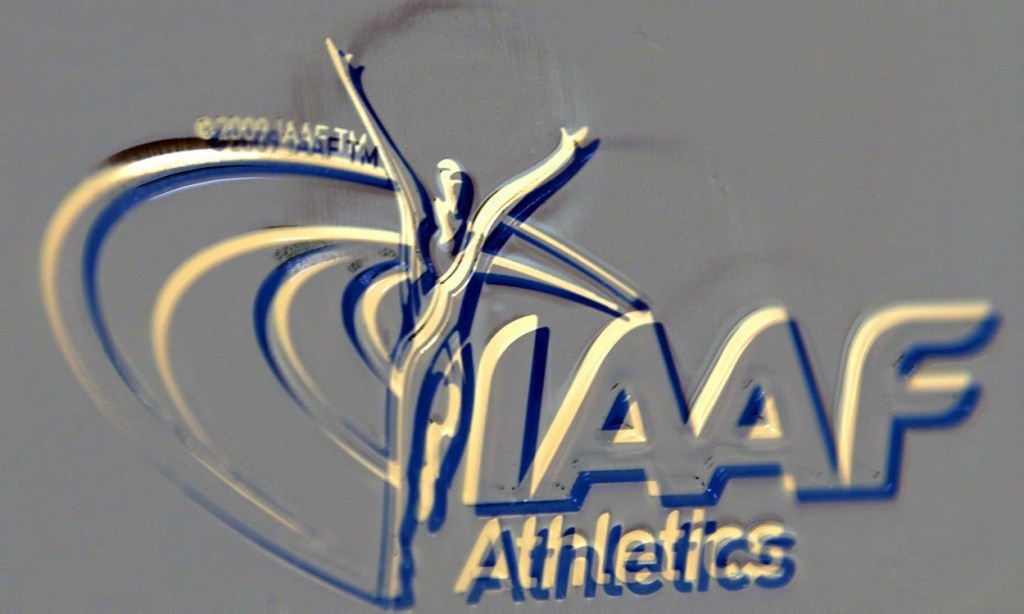
The 1928 Olympic Games went on sans race walking but before they were over, the IAAF (the former name of World Athletics) had decided to bring race walking back. Great Britain voted in Council in favor of a 50K (14 for 50K, 4 for 30K, and one abstention). (Handbook of the IAAF 1927-1928, Minutes of the 9th Congress of the IAAF, at pp. 56-57.)
British athletes showed their appreciation for that vote right out of the gate. Tommy Green won the inaugural Olympic 50K crown in Los Angeles in 1932.
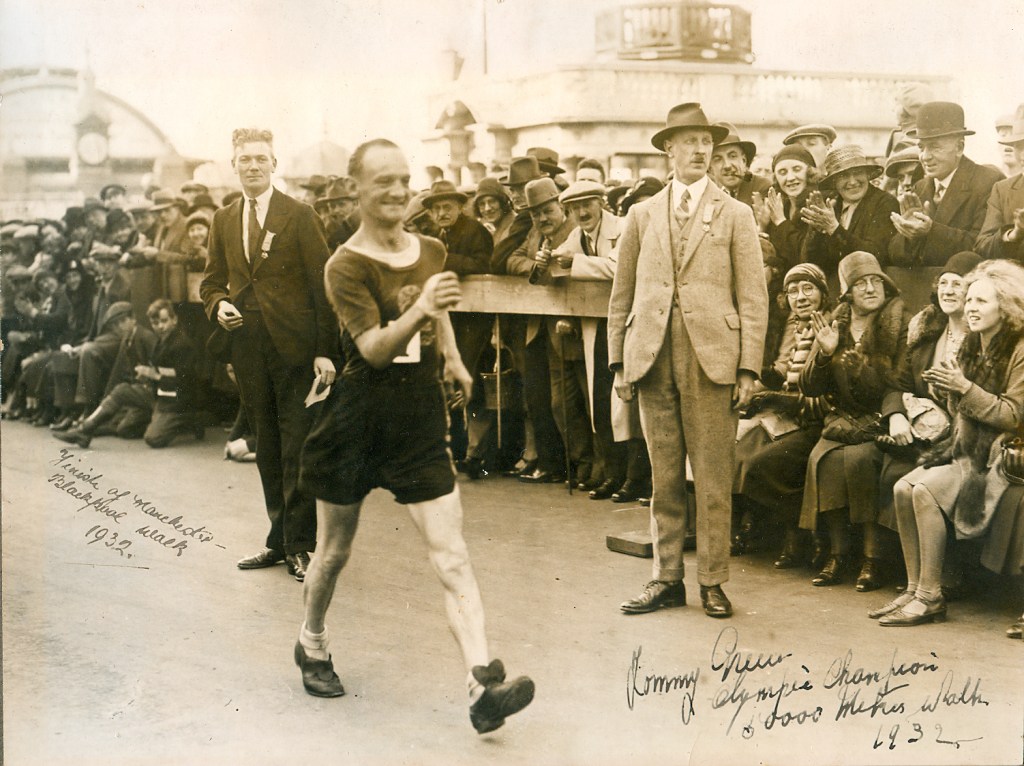
Harold Whitlock succeeded him at the 1936 Berlin Games.

Tebbs Lloyd Johnson took bronze when the Games resumed in 1948 before a home crowd.
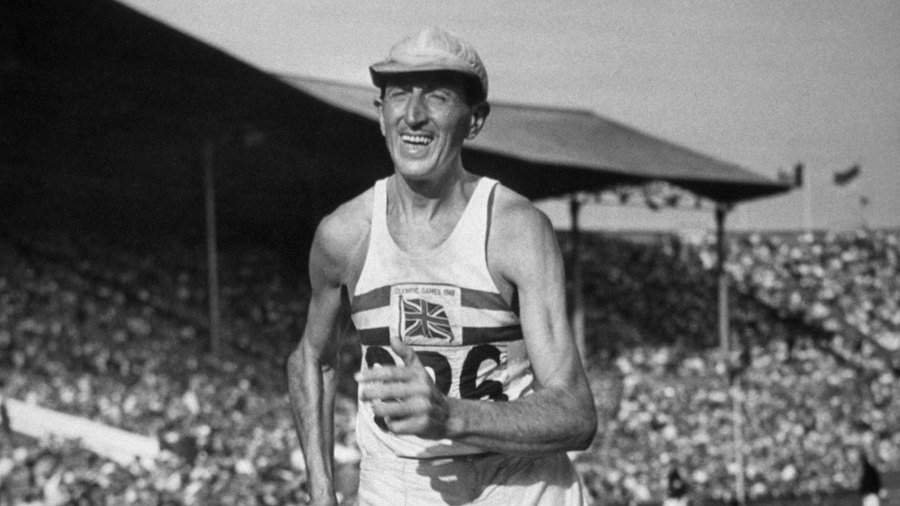
Whitlock returned in 1952 at age 48 (shades of Jesus Garcia) to finish 11th at the Helsinki Olympics, where his younger brother Rex just fell short of the podium.
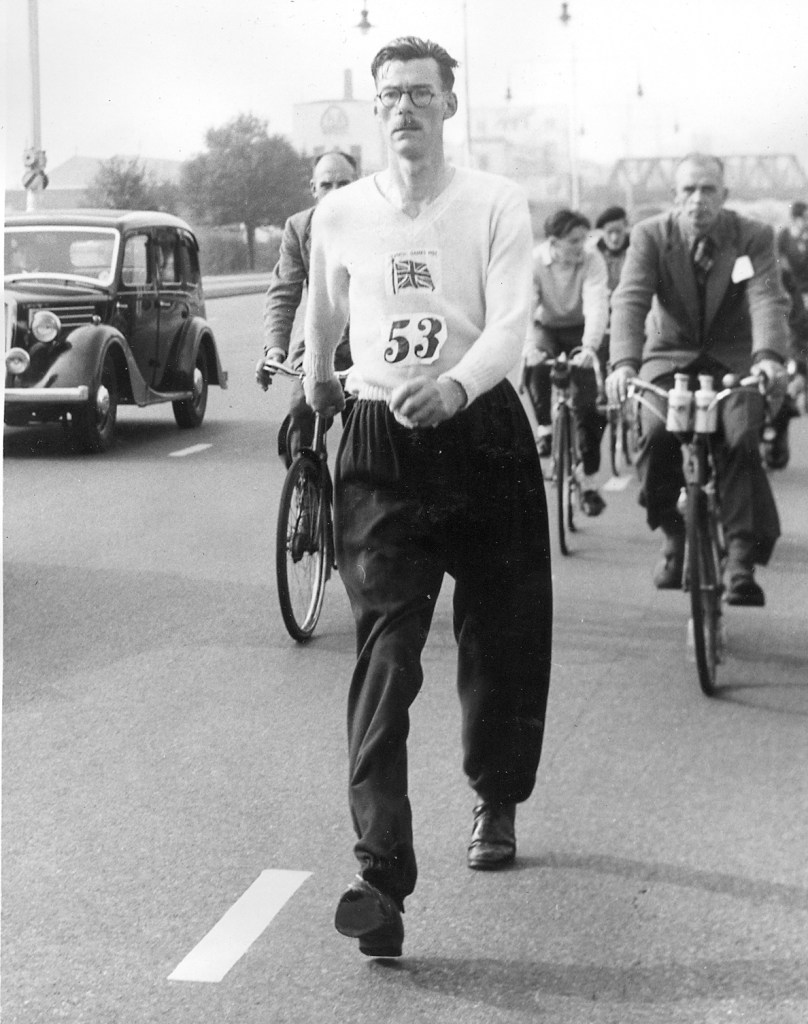
Four years hence, a Brit took gold again, sort of, as New Zealander Norman Read, from Plymouth, England, had emigrated Down Under only three years before his Olympic triumph.
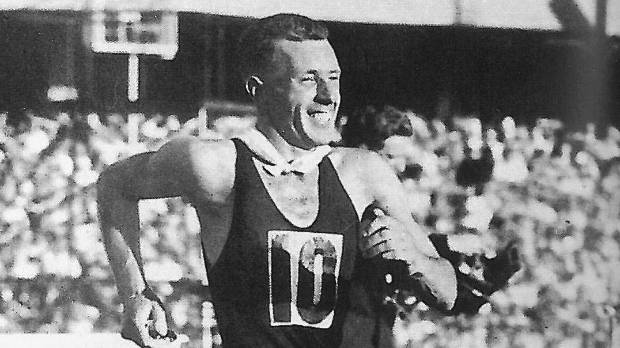
Don Thompson would return to the top step of the podium at the 1960 Rome Olympics. Half of the 50K gold through those Games had been placed around British necks (without counting Read’s).

It was the last British 50K gold but not the last medal. Paul Nihill took silver at the 1964 Tokyo Olympics. A favorite for gold four years later, he dropped out in a grueling race at high altitude in Mexico City. Nihill finished 9th at the 1972 Munich Olympics.
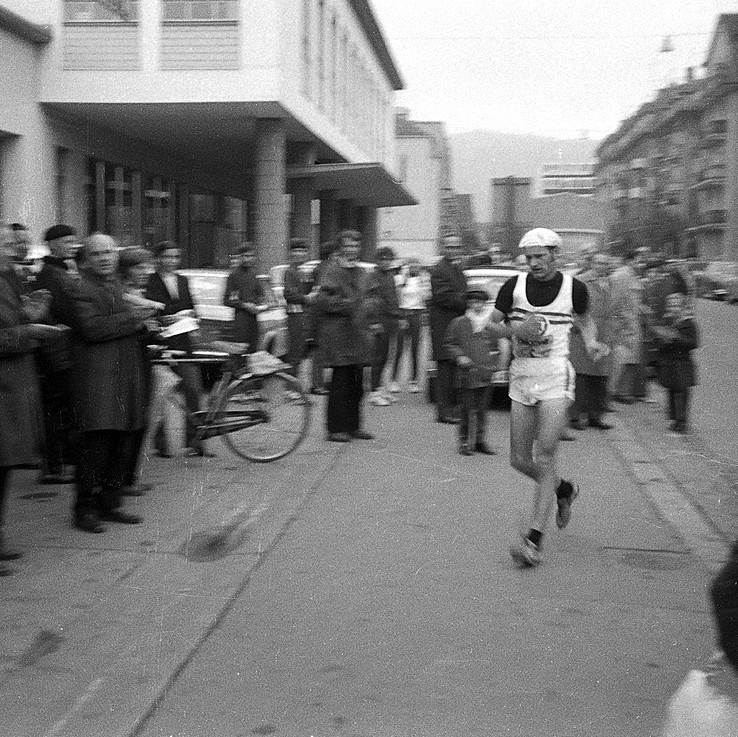
But by 2004, there were no more Brits in the Olympic 50K, a sad state of affairs that continued in 2008 and just now at the 2020 Tokyo Olympics. One 50K walker represented Britain at both the 2012 London and 2016 Rio Olympics: Dominic King. King earned a third Olympic spot this year based on his World Rankings but he and his colleague Cameron Corbishley, who were ranked respectively in 56th and 53rd, were withdrawn by British Athletics from Olympic selection even though the top 60 on the World Rankings list gained an Olympic entry. Out of those 60, 38 had met the 3:50:00 entry standard, with the next 22 having qualified on points (World Ranking).

What a shame considering that the 11th place finisher (Montana – Colombia) at the recent Olympic 50K was 76th on the World Rankings list prior to the Olympics; the 15th place finisher (Leyver Ojeda – Mexico) was ranked 59th; the 17th place finisher (Helebrandt – Hungary) was ranked 74th; the 24th place finisher (Cocioran – Romania) was ranked 83rd; the 26th place finisher (Kinnunen – Finland) was ranked 92nd; the 27th place finisher (Amores – Ecuador) was ranked 98th; the 35th place finisher (the indomitable Jesus Angel Garcia of Spain – age 51) was ranked 65th; the 36th place finisher (Papamichail – Greece) was ranked 81st; the 39th place finisher (Litaniuk -Ukraine) was ranked 68th; the 40th place finisher (Mundell – South Africa) was ranked 95th; the 41st place finisher (Morvay – Slovakia) was ranked 69th; the 45th place finisher (Bilodeau – Canada) was ranked 94th; the 46th place finisher (Gdula – Czech Republic) was ranked 62nd; and one of the non-finishers (Singh – India) was ranked 103rd.
In other words, Dominic King had every right to be among those participants. More so if one considers that he set a new British National Record at the British Olympic 50K Trials race in Dudince on March 20, 2021, when King posted a 3:51:13. King was 10th overall in that race. The guy who was 5th was only 1 minute 50 seconds ahead of King. And who might that guy be? Poland’s Dawid Tomala, who happened to win the Olympic 50K in Sapporo in 3:50:08, 45 seconds slower than his Dudince time.
Dudince turned out to be a good barometer for Olympic participation and performance. Of the 9 walkers who placed ahead of Dominic King in Dudince, 8 walked in Sapporo. They placed 1st, 13th, 18th, 31st, 34th, 36th, and 44th, with one non-finisher. The one other walker could not go because three colleagues from his country filled the three per nation limit already. Of the walkers who finished behind Dominic in Dudince, 11 made it to the Olympic 50K this year, finishing in Olympic positions 15, 20, 24, 26, 37, 38, 40, 41, 43, and 46, with one non-finisher.

Dominic King should have been in that 50K Olympic race in Sapporo. The reason he wasn’t is that the British Athletics selection policies are riddled with conflicts of interest, a lack of transparency and an anti-athlete attitude. What do you mean, anti-athlete attitude? Isn’t British Athletics there for the athletes? Far from it. When Dominic wanted to improve on his Dudince time at the European Race Walking Team Championships in Podĕbrady last May, he bumped into his federation’s ‘nyet.’ British Athletics was not even subtle about it. They said so in their selection policy for the meet: “British Athletics will only select athletes for the 20km events for the 2021 edition of the competition.” (See British Athletics Selection Policy 2021 European Race Walking Team Championships. – attached below as a pdf).
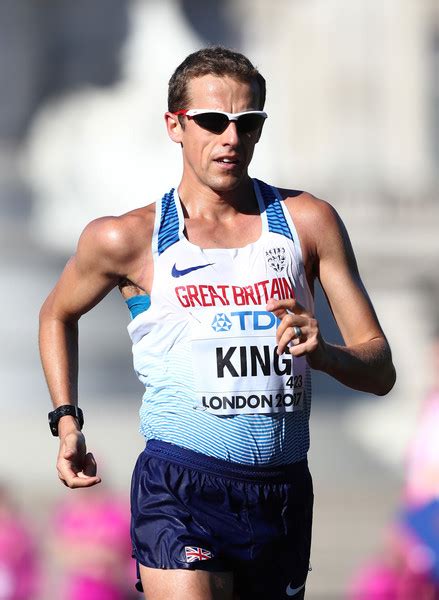
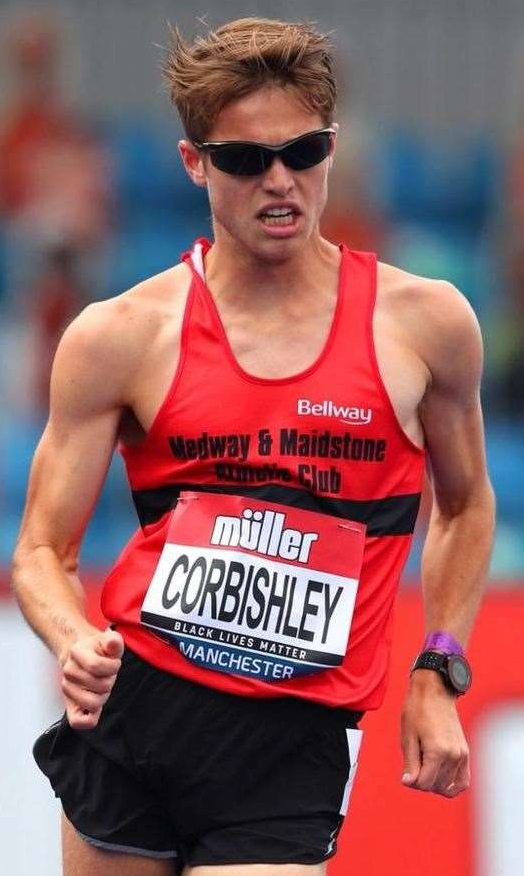
It gets worse. World Athletics published a list of potential entries when the qualification period for the Olympic 50K had ended. King and Corbishley’s names were at the bottom of the list with the term “Withdrawn” next to their names. They were the only two listed in that fashion. How embarrassing for a federation to publicly state that its athletes who had qualified for the Olympic Games had been withdrawn by the federation itself. Don’t be fooled by any British Athletics talk that athletes like King would have been selected only if they were expected to be in the top 8 of their competition. A male British marathon runner managed to finish only in 54th place out of 106 starters, the other two Brits not having made it to the end. So much for the predictability of the British selection system.
British athletics officials acting against athletes in general, 50K walkers in particular? Who knew? They must have learned that from their British role model Seb Coe, who as President of World Athletics engineered the demise of the 50K not only at the Olympics but also at our own World Championships and who was the aider and abettor in the Olympic conspiracy to shrink the athletics footprint at the Games. What Seb won’t do in his quest to succeed IOC President Thomas Bach when the former Olympic fencing gold medalist will be term limited out of office.
What a far cry from the days in 1928 when British athletics officials voted to bring race walking back to the Olympics and inaugurate the 50K. Brits helped launch the 50K and less than a century later brought about its abolition. Dominic King is the kind of athlete who embodies the Olympic spirit that participation is more important than winning. He has a regular day job and a family. Race walking is his hobby. He has performed as well as he has over the years without much support from his federation. I was privileged to assist Dominic when he appealed his non-selection. But arguing with those who stabbed him in the back got the expected result. British Athletics should drop the term ‘athletics’ from its name. They do not deserve the appellation.
See British Athletics Selection Policy 2021 European Race Walking Team Championships.





Hi Tony, I read the article on “The decline and fall of the British Empire:A Case Study – the 50 kilometres race walk. It brought back memories and I was grateful for your article from Paul F. DeMeester. I would like to point out one error. THe picture of Don and Tom which you say was taken in the Milan 100 kilometres was in fact taken on the London to Brighton in 1958. The photo was printed non the front cover of the “Athletics Weekly” (price 9d.) on September 27th 1958. I have a copy of the magazine.
Kind Regards
Shaun Lightman
>
Shaun,
Many thanks for the correction. I will amend. Hoping you are in good fettle.
Best wishes,
Tony